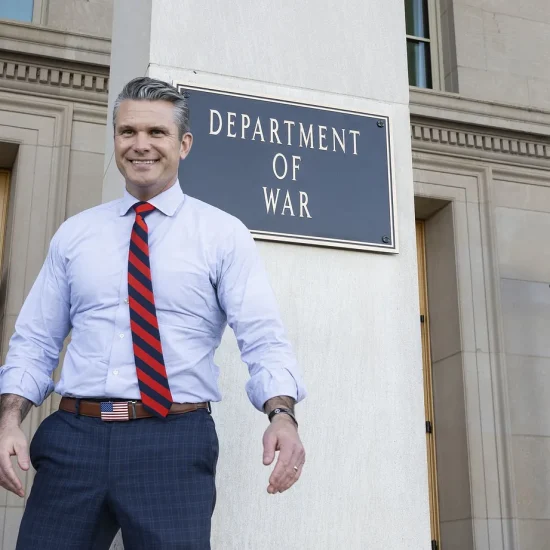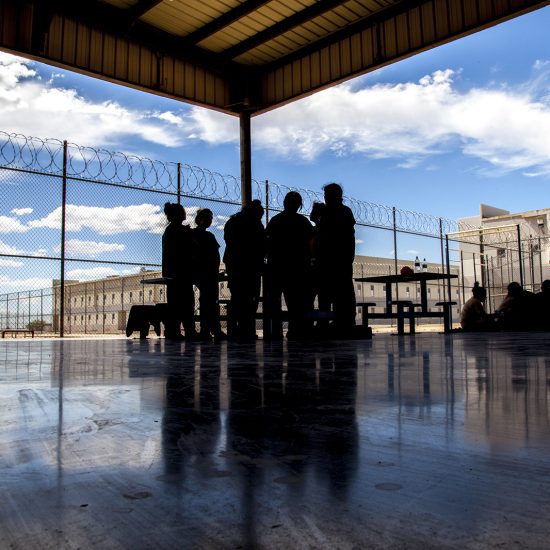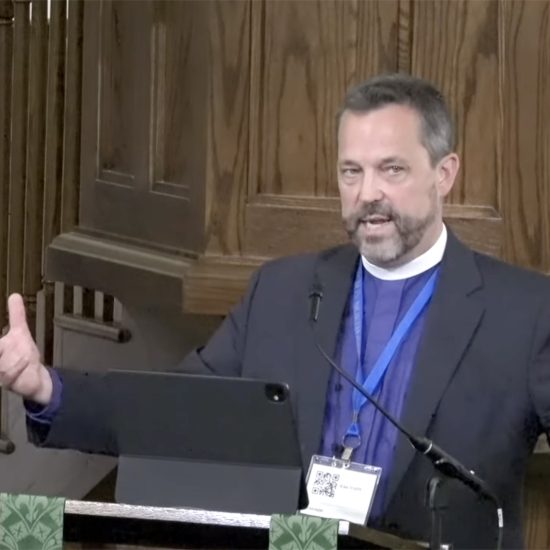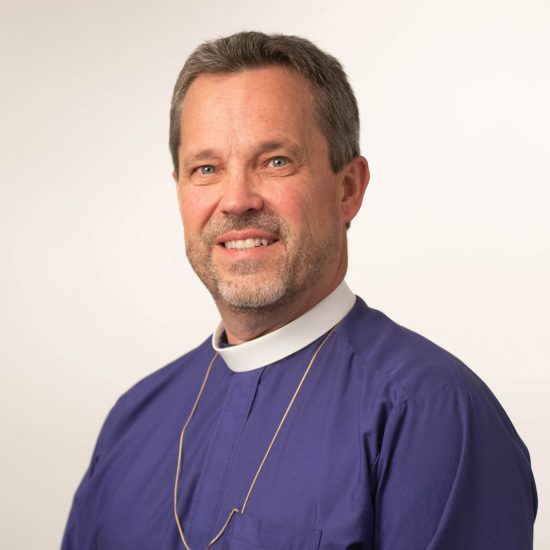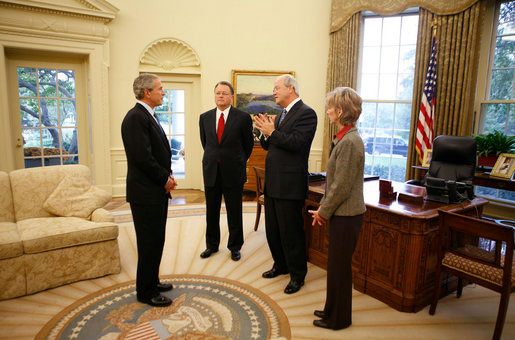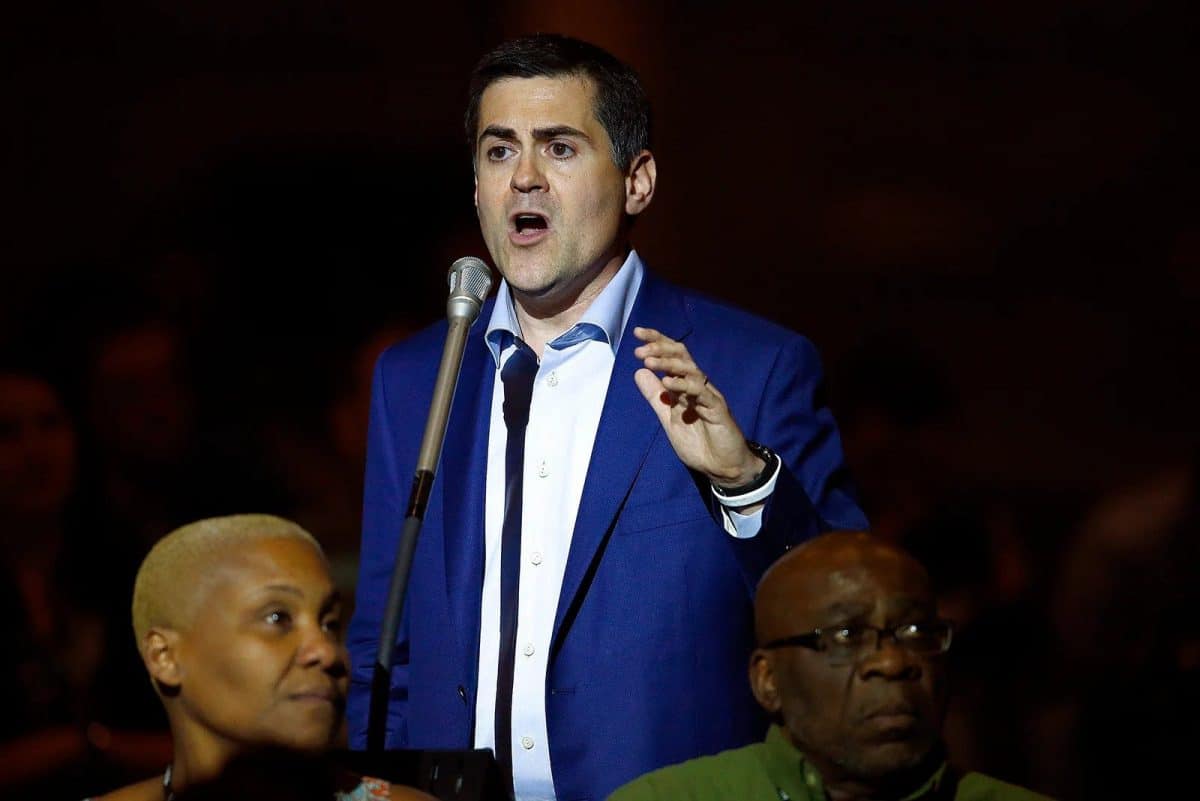
(RNS) — For years before his resignation last month as president of the Southern Baptist Convention’s Ethics and Religious Liberty Commission, the Rev. Russell Moore was considered the denomination’s most outspoken “Never Trumper,” and when he departed for a job at Christianity Today magazine, it was considered a victory for pro-Trump SBC forces. But in a letter written more than a year before his resignation, Moore explained his troubles with the SBC’s leadership in bitterly frank terms, and Donald Trump hardly makes an appearance.
The root of the friction was not his opposition to Trump, Moore said, but was caused by the stands Moore had been taking on the SBC’s race and sexual abuse issues, which had raised hackles with a “small minority” that Moore does not name but can be identified as key members of the denomination’s governing Executive Committee.
The letter, which was leaked by an ERLC trustee on Saturday (May 29), sheds light on Moore’s reasons for resigning his position and outlines the personal pressure Moore had been under from SBC leaders.

Russell Moore, president of the Ethics & Religious Liberty Commission, speaks at the Southern Baptist Convention annual meeting in Phoenix, Arizona, on June 14, 2017. (Ross D. Franklin/Associated Press)
“I have been attacked with the most vicious guerilla tactics on such matters and have been told to be quiet about this by others,” he wrote.
Moore did not respond to repeated requests for comment on the letter.
A week before Moore sent the letter, the Executive Committee had formed a task force to investigate how recent “ministry statements” by the ERLC had affected church giving to the denomination’s primary mission fund, called the Cooperative Program. The ERLC trustees had strongly objected to the task force’s creation and instructed ERLC not to cooperate with it, and Moore’s letter is written in part to thank them. It was the second time the Executive Committee had looked into how Moore’s leadership at the ERLC had affected giving by Southern Baptist churches.
The new task force’s report, which was delivered in February 2021, claimed the ERLC constituted a “significant distraction from the Great Commission work of Southern Baptists” and blamed the ERLC for the loss of more than a million dollars in church donations to the Cooperative Program, its primary source of revenue for missions. Among the reasons for withholding funds, the report listed Moore’s opposition to Trump, his condemnation of attacks on the U.S. Capitol and a general “liberal drift” exemplified by the agency’s support for immigration reforms.
But in his letter to the trustees, Moore claimed most Trump supporters he met had “been nothing but kind and encouraging to me.” Instead, he argued, “the presenting issue here is that, first and foremost, of sexual abuse.”
“At the same time,” he wrote, “the other absolutely draining and unrelenting issue has been that of racial reconciliation.”
In February of 2019, Moore had supported SBC President J.D. Greear’s push to investigate 10 Southern Baptist churches where allegations of clergy sexual abuse had been made. The Executive Committee chose at the time to follow up on only three of the churches.
“This Executive Committee, through their bylaws workgroup, ‘exonerated’ churches, in a spur-of-the-moment meeting, from serious charges of sexual abuse cover-up,” Moore complained in his letter.
He also pointed to an incident where a speaker at an ERLC conference in 2019 criticized the Executive Committee. In the fall of 2019, during a conference on sexual abuse in the SBC called Caring Well, Moore interviewed Rachael Denhollander, a former USA gymnast who outed team doctor Larry Nassar’s serial sexual assault. Denhollander criticized the Executive Committee for how it had reported on the case of Jennifer Lyell, who had accused a Southern Baptist seminary professor of abuse.

Abuse survivor Rachael Denhollander (right) discusses the Southern Baptist Convention’s history of addressing sexual abuse with ERLC President Russell Moore at the Caring Well conference in Dallas, Texas, on Oct. 4, 2019. (Karen Race Photography/Religion News Service)
“That enraged some Executive Committee trustee leadership, who communicated that they were incensed that we would allow such a story to be told,” Moore wrote.
After the conference, Moore said in the letter, he had received a veiled threat from Executive Committee trustees, characterizing it as being delivered with Mafia-like menace: “You’ve got a nice little Commission there; would be a shame if something happened to it.”
On race issues, Moore claimed in the letter that SBC leaders had been concerned about the ERLC promoting critical race theory, the academic work that sees racism in the United States as systemic, and the equality of the sexes in church and Christian life. But he said others took issue with his hiring of Black staff at the ERLC and advocating for the convention to elect a Black president.
Moore relates how an SBC leader questioned certain hires at the ERLC whom the leader viewed as insufficiently Baptist. “When I answered his concerns to his face, he said, ‘I was really just concerned about that black girl, whether she’s an egalitarian,’” referring to the hire of Trillia Newbell to the ERLC and questioning her commitment to the SBC’s complementarian gender theology.
“When I asked what possibly could lead him to think that a woman who has written complementarian articles for complementarian websites was an ‘egalitarian,’ he responded: ‘A lot of those black girls are,’” Moore recalled in the letter.
Moore claimed the same leader, when discussing Black victims of police violence, retorted that “only those with guns would prevent black people from burning down all of our cities.”
“My family and I have faced constant threats from white nationalists and white supremacists, including within our convention,” he wrote. “Some of them have been involved in neo-Confederate activities for years. Some are involved with groups funded by white nationalist nativist organizations. Some have just expressed raw racist sentiment behind closed doors.”
Moore made clear he believed his opponents were led by then-Executive Committee Chairman Mike Stone, who also headed the task force looking into the ERLC. Moore alleges this group had used its oversight of the Cooperative Program to mount investigations. Their objections, Moore charged in colorful terms he disavowed, were that he was “‘not playing enough to the Bubbas and the rednecks; they pay the bills.’”
The real intent of the investigation, he wrote, was to keep him quiet “so that Southern Baptists do not hear what goes on.”
While Stone has said in the past he was not seeking Moore’s resignation, Moore in his letter said this was part of a strategy to keep him “in psychological terror, so that I will not say what the Southern Baptist Convention has assigned me to say, much less to reveal what I know about what goes on behind the scenes.”
Stone, now one of the leading candidates for president of the Southern Baptist Convention, is a leader in the Conservative Baptist Network, which has been critical of Moore and other SBC leaders. Supporters have touted Moore’s resignation as proof of Stone’s effectiveness as a leader.
Despite Moore’s departure, the nation’s largest Protestant denomination remains divided over race, gender, and politics while experiencing ongoing loss of membership.
Toward the end of his letter, Moore professed his love for the SBC and said he would not back down, no matter what critics said.
“When God called me to himself in Jesus, and when he called me to serve him in ministry, he called me to stand for the truth, to point the way to the kingdom, to die to self, and to carry the cross. He did not call me to provide cover for racial bigotry and child molestation. I will not do that,” he wrote. “I love the Southern Baptist Convention and am a faithful son of the Southern Baptist Convention. I do not believe the people of the Southern Baptist Convention want me to do that, at least that’s not how they have acted in their votes when they are assembled together in national convention. But a small group in the shadows do want me to do that. They want me to be afraid of them. They want you to be afraid of them. I am not afraid of them.”
On Wednesday (June 2), a Tennessee church not affiliated with the Southern Baptist Convention had joined as its minister in residence.

